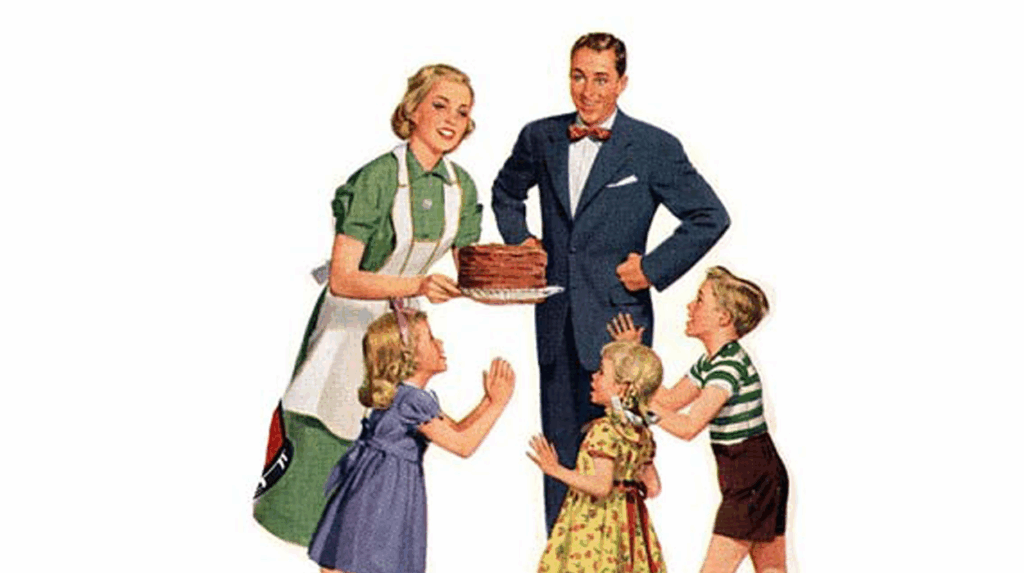
In an ever-evolving society, the role of the family remains one of the cornerstones of American culture. For generations, the traditional family unit — consisting of a father, mother, and children — has been the foundation upon which American values, morals, and social structures have been built. But what exactly is it about this traditional family model that has made it so integral to our national identity, and how does it continue to shape our culture today?
Cultural Foundation and Stability
From the earliest days of Western culture, families have played a crucial role in shaping our values and social norms. For most of American history, families were seen as the primary institution responsible for raising children and instilling values such as hard work, responsibility, and mutual respect. The concept of “family values” was not just a political term but a lived experience that was passed down from generation to generation.
In many ways, traditional families have been the pillars of stability. They created a structure in which children could learn the skills they needed to become well-rounded, responsible adults. This stability allowed communities to thrive, as parents worked together to provide for their children while also nurturing emotional and intellectual growth.
Impact on Social Structure
Beyond the family home, the traditional family unit also played a significant role in shaping the broader social structure. In a world that is often divided by political, cultural, and economic differences, family units have historically been the place where shared values helped bridge gaps and foster unity. A strong family is more likely to create individuals who are responsible, compassionate, and community-oriented, which in turn contributes to a well-functioning society.
Traditional families also provide the structure needed for healthy child development. Studies have shown that children raised in two-parent households tend to perform better academically, emotionally, and socially. The stability and support that a nuclear family offers helps children feel safe, loved, and prepared to take on the challenges of the outside world.
Family as a Source of Emotional Support
In a fast-paced, often unpredictable world, the family remains a vital source of emotional support. The traditional family unit provides a safe haven for individuals during times of crisis, offering a sense of security and unconditional love. These emotional bonds create a lasting foundation of trust and resilience that carries over to future generations.
Families offer stability in ways that no other institution can, ensuring that individuals, especially children, have the emotional backing they need to navigate life’s challenges. Whether it’s providing advice during tough times, celebrating successes, or simply being there for one another, the importance of family ties cannot be overstated.
Preservation of Social and Moral Values
One of the most enduring aspects of traditional families is their role in preserving cultural and moral values. For many, the family is where religious beliefs and customs are taught, where holidays are celebrated, and where generational knowledge is passed on. This preservation of cultural traditions helps maintain the fabric of American society, ensuring that future generations remain connected to their heritage.
By reinforcing values like love, loyalty, honor, and hard work, traditional families serve as the transmitters of a moral compass that guides behavior and decision-making. In a world that is increasingly diverse and multicultural, the family continues to be a constant source of shared identity.
Challenges Facing Traditional Families
Despite the critical role of traditional families, this structure is not without its challenges. The modern world has introduced new dynamics, such as changing gender roles, economic pressures, and evolving social norms. The rise of single-parent households, blended families, and alternative family structures are reshaping the way we think about family life.
The attack on the importance of fathers cannot be understated. Although the culture will not come out and say it directly, men are seen as, at best, a benefit or, at worst, completely unnecessary. The evidence is clear though. Children raised with a biological father in the home are at much lower risk of dropping out, getting into trouble with the law, and drug use.
We’ve got work to do
In conclusion, the traditional family is not just an outdated concept but a vital institution that has shaped the very fabric of American society. Its influence on cultural, emotional, and economic stability is undeniable, and its role in preserving shared values and morals continues to resonate today. While the definition of “family” may be expanding in modern times, the importance of the nuclear family has never been more clear.
By understanding the importance of traditional families, we can ensure that future generations continue to benefit from the stability and values that have always made America strong.
Leave a Reply